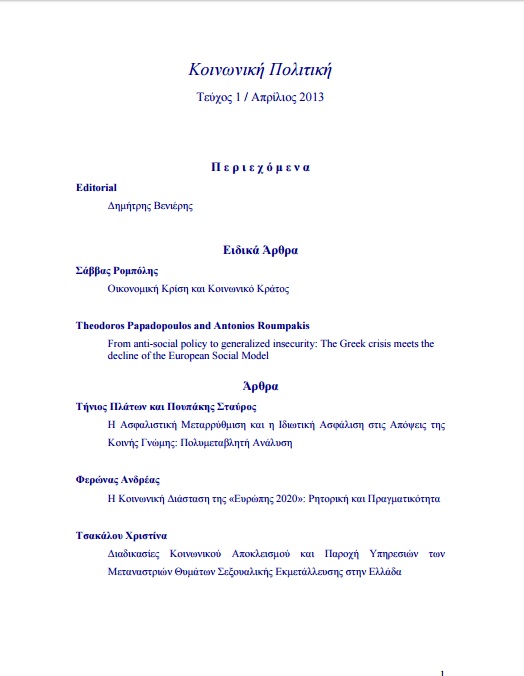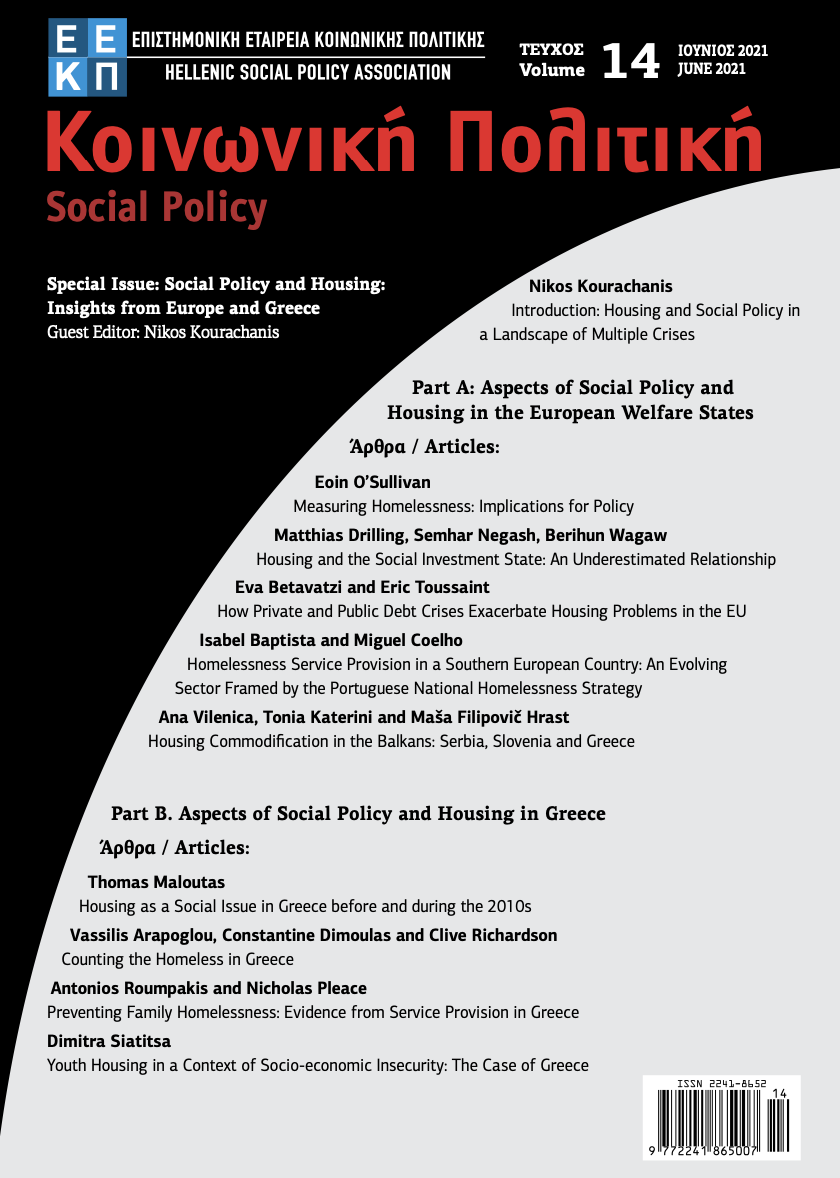From anti-social policy to generalised insecurity: The Greek crisis meets the decline of the European Social Model
Abstract
Our article examines key aspects of the Greek crisis and explores it under the light of the ongoing decline of the European Social Model. It is argued that the austerity measures implemented as conditions for receiving consecutive ‘bail-out’ loans have had, so far, a very negative impact upon the Greek economy, politics and society. Further, it is argued that labour market reforms underway inGreeceand the rest ofSouthern Europesignal some very worrying developments with respect to the social dimension of European integration. Indeed, especially in the area of collective agreements, when we view these reforms from a European perspective we can identify the rise of wage policy interventionism by the EU; a new process that ‘combines European requirements for national wage and labour market policies with the threat of economic sanctions’ (Busch et al (2013:8). In turn this signals the intensification of the (neo) liberalisation of the European Social Model and puts under severe doubt the prospects for a more socialEuropethat will prioritize social objectives and rights over economic freedoms.
Article Details
- How to Cite
-
Papadopoulos, T., & Roumpakis, A. (2017). From anti-social policy to generalised insecurity: The Greek crisis meets the decline of the European Social Model. Social Policy, 1, 15–36. https://doi.org/10.12681/sp.10551
- Issue
- Vol. 1 (2013)
- Section
- Articles

This work is licensed under a Creative Commons Attribution 4.0 International License.
Authors who publish with this journal agree to the following terms:
Authors retain copyright and grant the journal right of first publication with the work simultaneously licensed under a Creative Commons Attribution Non-Commercial License that allows others to share the work with an acknowledgement of the work's authorship and initial publication in this journal.
Authors are able to enter into separate, additional contractual arrangements for the non-exclusive distribution of the journal's published version of the work (e.g. post it to an institutional repository or publish it in a book), with an acknowledgement of its initial publication in this journal.
Authors are permitted and encouraged to post their work online (preferably in institutional repositories or on their website) prior to and during the submission process, as it can lead to productive exchanges, as well as earlier and greater citation of published work.




